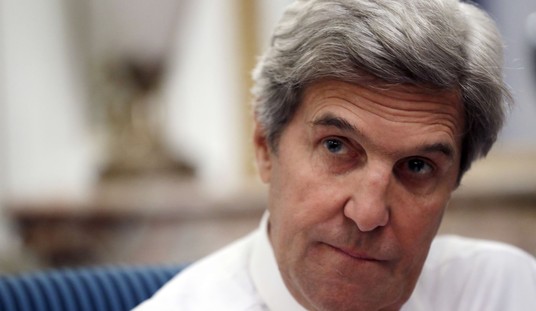The U.S. presidential candidates' inability to agree on a Fox vs. ABC presidential debate venue is another indication that the belief in a neutral, impartial media is dead. News now travels down two separate channels. The only way for the establishment to regain signal dominance and re-merge these streams into one channel is to suppress their rivals as "disinformation."
To understand the collapse of the media prestige and authority, it is first important to examine how it originally rose. People trust the voice that brings them plenty. During Cold War I, Pravda was the voice of sawdust sausage, the Gulag, and the KGB. It was the voice of starvation. The BBC by contrast was London, miniskirts, and a jet ride away from American supermarkets. It was the voice of a winner. There had to be something to what it said.
The media was once a paean to "whiskey, democracy, sexy," which fairly represented the actual advantages of the West. Then at some point, it became a scold for diversity, equity, and inclusion and pounded the drumbeat of degrowth, global warming, and racial guilt that promised carbon-neutral poverty and belt-tightening. People were told they would own nothing and like it, but that did not square with most people's feelings. The promised joys of watching blank-faced old politicians stumbling around a stage or the spectacle of obese transvestites heaving in the spotlight hardly made such sacrifices seem worthwhile.
People started believing that the media was becoming a shill for failure, just like Pravda. A generation that signed up for a future of flying cars and space babes and got — well, multiculturalism. They felt cheated and lied to. The dissatisfaction has broken out into the open in England where the British working class has vomited up its left-wing fare and is about to get a punitive lesson in defying its betters.
Something extraordinary happened in the UK this week: the murder of three working-class girls was turned into a moral panic about working-class communities. Ruthlessly, with something approaching relish, the media elites dragged the public gaze from the frenzied stabbing of girls in a seaside town to the supposed frothing bigotries of the seaside town itself. In elite circles, angst over the evil visited on the children of Southport gave way to a foreboding over what lurks within Southport. In those terraced houses, with their white working-class inhabitants, so susceptible to online lies, so given to racial animus. These people want us to fear not the wicked individuals who terrorise our towns, but the towns themselves.
The murders were inflammatory, but what really drove outrage was the sheer mendacity of the people on TV, the trusted faces. Reported crimes, however evil, are ultimately offenses against someone else, but an anchor gaslighting you is offending you personally. The insistence that the public disbelieve their lying eyes unleashed a head of steam, a volcanic force that had been slowly building for years. Everybody knew the crisis was building along cultural fault lines, but nobody wanted to warn that the ulcer was growing because telling the truth was not on the media script.
The one thing that could have prevented the present crisis or headed it off at the pass, the one thing democracy was designed to do was warn of the danger through free speech. But this was precisely what was forbidden in the name of stopping "hate speech" a prohibition that will be enforced even more sternly.
The producers may have understood the media was dead long before the viewers did. Perhaps it was no accident that Huw Edwards, Phillip Schofield, Rolf Harris, and Jimmy Savile were the faces of establishment messaging. A failing system needs propagandists who will say whatever they are told out of the fear of losing their social position, whose fear of being canceled — thereby losing the ability to use fancy titles and be invited to the right dinner parties and award ceremonies — keeps them doggedly on script.
These desperados were the men for the dirty job. But since credibility ultimately flows from the system's ability to make good on their words, propaganda is ultimately self-limiting. Just as a colony of bacteria may release waste that is ultimately toxic to the colony once it exceeds a certain population, eventually the media reaches a point where it poisons itself. Then the establishment must resort to threat.
British Prime Minister Keir Starmer said Monday that a “standing army” of specialist police would be set up to deal with rioting and that the justice system would be ramped up to handle hundreds of arrests after violent disorder rocked cities across the nation over the past week.
The problem with Starmer's strategy, apart from conceding that the media system doesn't work anymore, is that he has put the fate of his government in the hands of groups he can't — and won't — control. If what he assumes to be peaceful protesters and communities that he is trying to protect with his standing cop army go on the attack, what then? Every day that passes increases the risk that he will be betrayed by his own wishful thinking.
For the media to regain trust, it must represent an establishment that you would want to trust, one that, to use an ironic phrase, will Make Great Britain Great Again. That can only happen when the narrative returns to a reasonable approximation of reality. Otherwise, the day will come when no one even remembers how to make "whiskey, democracy, sexy" anymore.










